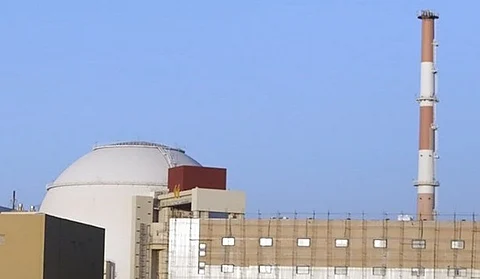

Officials from Russia, China, and Iran will hold a trilateral meeting in Tehran on Tuesday to discuss the status of Iran’s nuclear program and to coordinate a response to the growing threat of European powers reimposing pre-2015 sanctions.
Iranian Foreign Ministry spokesperson Esmail Baghaei announced the meeting during a press conference on Monday, stating, “One of the focuses will be to discuss the nuclear issue, including the possible restoration of sanctions.” He noted that the talks will occur at the “director-general” level, indicating a technical and policy-focused discussion rather than one involving foreign ministers.
The meeting comes amid rising tensions with the so-called E3—Germany, France, and the United Kingdom—which have recently warned that they may invoke the “snapback mechanism” that would reimpose sanctions lifted under the 2015 Joint Comprehensive Plan of Action (JCPOA).
Since March, officials from Iran, Russia, and China have held regular meetings regarding Iran’s nuclear activities, especially after the United States under President Donald Trump renewed pressure on Tehran to sign a new nuclear agreement.
Baghaei emphasized that Tehran shares common views with Moscow and Beijing on a wide range of international issues and that both Russia and China, as permanent members of the UN Security Council, can play influential roles in shaping the global diplomatic response.
Tuesday’s meeting is expected to serve as a platform for the three nations to coordinate their positions and develop a joint diplomatic strategy should the E3 proceed with reimposing sanctions. It also reflects the increasingly close alignment among Iran, Russia, and China amid a broader shift in global geopolitical alliances.
Later this week, on Friday, Iranian Foreign Minister Abbas Araghchi will meet with representatives from the E3 countries in Turkey. This marks the first direct engagement between Iran and the European bloc since the United States conducted attacks on Iranian nuclear facilities on June 22, during a 12-day war with Israel that Washington openly supported.
Iran has stated that it will not resume indirect negotiations with the United States unless firm guarantees are provided that neither the U.S. nor Israel will launch attacks on Iranian targets during talks—such as what occurred in June.
The E3 countries have escalated their pressure on Tehran in recent weeks, warning that they may trigger the snapback sanctions as the sunset clauses of the JCPOA are set to expire in October. In response, Tehran has repeatedly warned that if such sanctions are reimposed, it would consider withdrawing from the Nuclear Non-Proliferation Treaty (NPT), dramatically escalating the standoff.